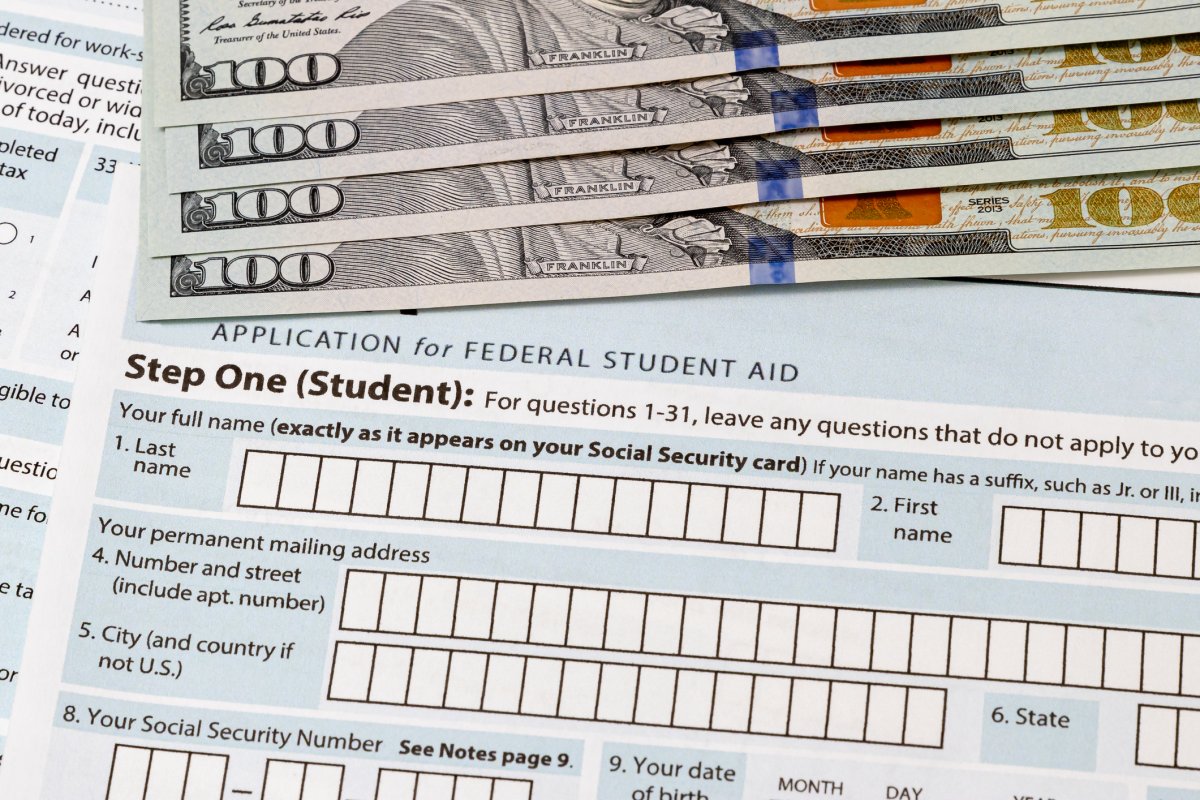Arkansas is treating student loan forgiveness as taxable income despite one man believing he did not have to pay any levies.
Federal student loans were paused for several years at the onset of the coronavirus pandemic, ending in September 2023 with payments restarting in October. But now debt-holders in Arkansas are struggling to come to terms with how they will pay the remainder of their balances as the Biden administration faces a Supreme Court block on its original plans to cancel student debt for millions of borrowers.
Mark Gibson, who lives in Beebe, Arkansas, told 7 On Your Side that he called his loan service provider which told him there would be no tax on his student loans and “that they did not have information that said that my state would be taxing it.”
“I borrowed $45,000 and over the course of 23 years it built up to $155,000 and so that was a substantial amount of money that was forgiven,” he said. “I’m 60 years old and I’m on a limited income—I have some health problems—and I just…the only option for me at this point would be bankruptcy on that amount of money.”
Arkansas Department of Finance and Administration spokesperson Scott Hardin told 7OYS: “This has been the case for many years, loan forgiveness is considered taxable income in Arkansas. That applies to student loan forgiveness.” Newsweek has contacted Arkansas Department of Finance for clarification via email.
GETTY
Why Are Some States Taxing Loan Forgiveness?
According to a report for the Tax Policy Center by Nikhita Airi and Lillian Hunter, whether or not a state taxes debt forgiveness is down to whether the state conforms to federal income tax laws when creating state-level income tax legislation.
“The vast majority of states that have an income tax will not tax forgiven student loans because they ‘conform’ with federal definitions of income,” they explain. “While forgiven debt is usually treated as income, last year’s (2021) American Rescue Plan Act (ARPA) explicitly exempted student debt forgiven between 2021 and 2025. But not all states conform to the current version of federal tax laws.
“If a state uses the current definition of federal adjusted rolling income—’rolling conformity’—then forgiven student loans are not taxable under these states’ income taxes. However, if a state conforms with federal rules as defined before March 2021, any forgiven student loan debt will be treated as taxable income.”
They cite Minnesota and Wisconsin as examples that both use the older definition of federal AGI. Both tax student loan forgiveness.
States that do not levy income tax, such as Alaska, Florida and Nevada, will therefore not tax any loan forgiveness.
Last year, the Biden administration announced the Saving on Valuable Education (SAVE) program, which would reduce the monthly payments of many low- and middle-income borrowers by forgiving up to $10,000 of debt for eligible borrowers. The Supreme Court previously blocked plans for another debt relief program for federal student loans late in 2023.
Uncommon Knowledge
Newsweek is committed to challenging conventional wisdom and finding connections in the search for common ground.
Newsweek is committed to challenging conventional wisdom and finding connections in the search for common ground.
Credit: Source link




